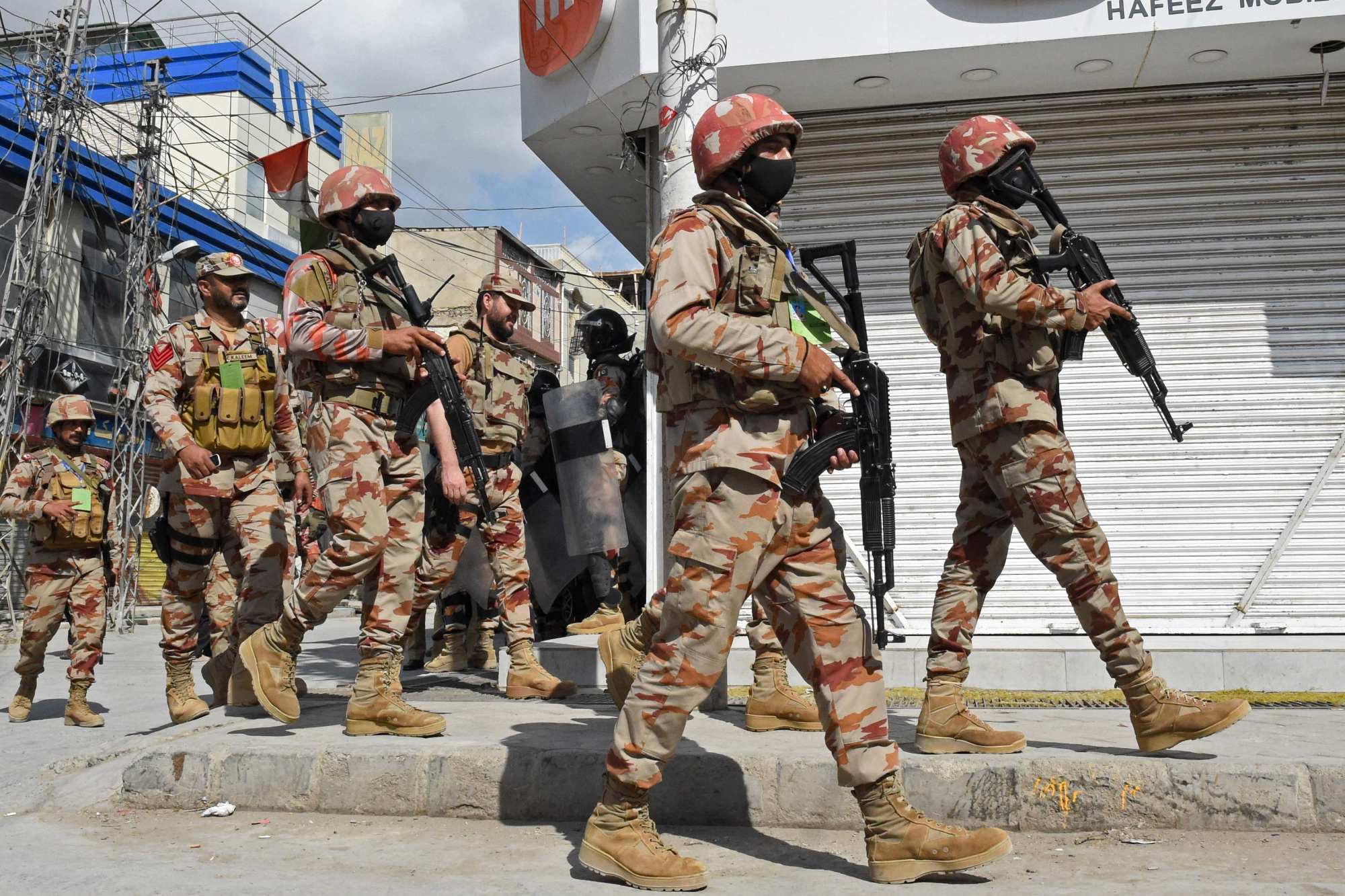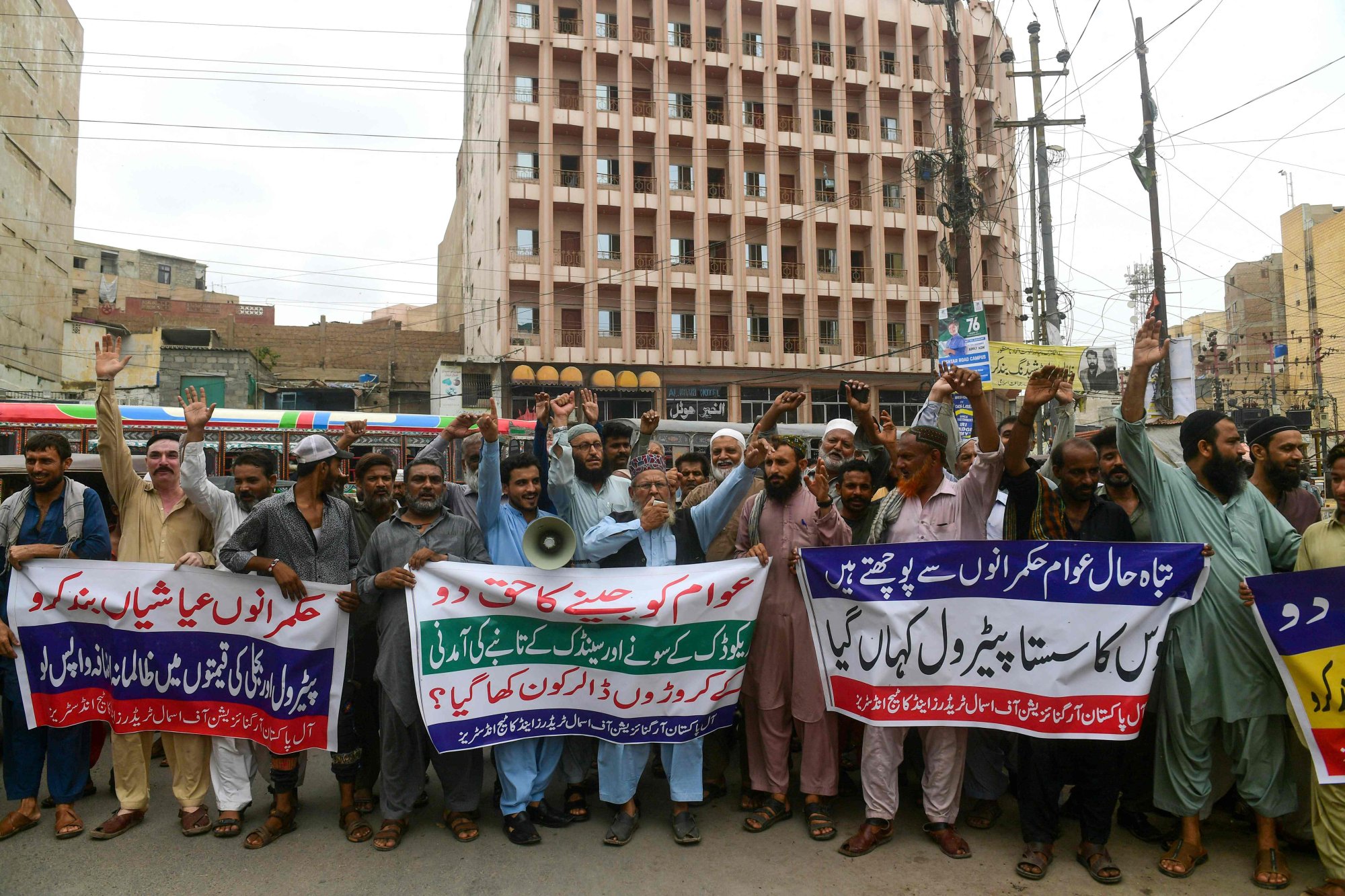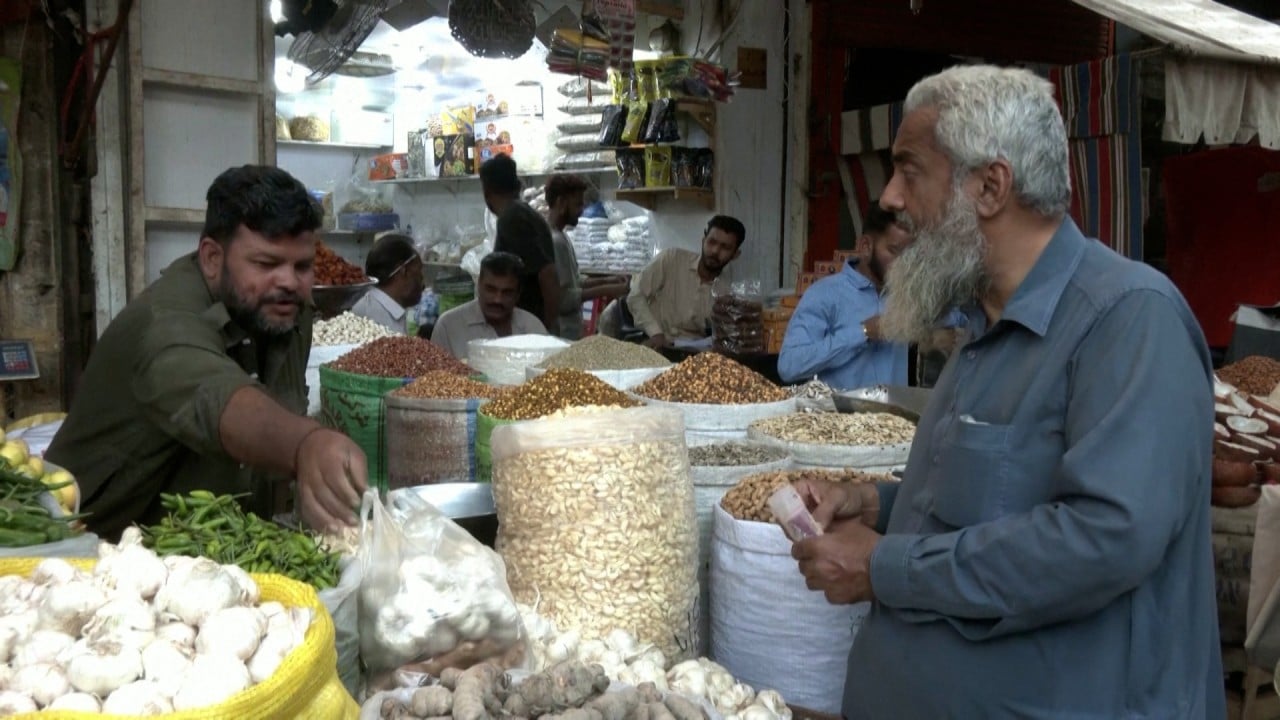
Pakistan to dissolve parliament amid fears, uncertainty over freedom and fairness of general election
- Any delay could lead to the polls being conducted in early 2024 instead of November as scheduled
- An election denying former PM Imran Khan a level playing field would yield ‘short-term superficial’ stability that would be ‘illusionary at best’, one analyst says
An expected postponement could lead to the polls being conducted in early 2024 instead of November as scheduled, said ministers and election commission officials.
The delay has added to concerns about the freedom and fairness of the coming election, after former prime minister Imran Khan was banned by the Election Commission of Pakistan on Tuesday from contesting any poll for the next five years.
The ban was triggered by Khan’s court conviction on Saturday for “corrupt practices” arising from the illegal sale of state gifts.
However, the ex-leader’s fate is widely believed to have been sealed on May 9, when supporters of his Pakistan Tehreek-e-Insaf (PTI) party attacked military installations in response to Khan’s previous arrest for ignoring repeated summons from the country’s anti-corruption watchdog.
Pakistan’s army, which has dominated national politics for nearly 70 years, accused Khan and his aides of attempting to incite a mutiny within its officer cadre as a prelude to a coup against the government.
Nonetheless, Khan remains popular, and an election in which he and his party are denied a level playing field would yield “short-term superficial” stability that would be “illusionary at best”, according to Fahd Humayun, an assistant professor of political science at Tufts University in the United States.
“It is not going to provide long-term political and economic stability, simply because the election is not going to be representative of popular will,” he said.
Jailed ex-PM Imran Khan barred from Pakistan politics for five years
Under immense pressure from the military, most PTI politicians influential enough to win national or provincial assembly seats have already deserted the party.
This makes it challenging for the PTI to field enough strong candidates in the general election to stand any chance of winning.
Khan and the PTI were ushered into power in 2018 after a general election marred by interference by the military and supreme court.
Instead of focusing on good governance as the military had envisioned, the PTI administration zeroed in on hateful rhetoric against the leaders of rival parties and imprisoned most of them.

Meanwhile, Pakistan’s economy teetered ever closer to a Sri Lanka-like default under the PTI government as it failed to comply with the terms of an International Monetary Fund (IMF) balance of payments support programme, which it negotiated in 2019.
Khan extended his bombast to the army’s top generals after they withdrew their support, paving the way for his removal as prime minister via a vote of no confidence in April 2022.
Having helped him rise to power, the Pakistani army now “feels compelled to deal with the consequences of the polarisation Khan has unleashed”, said Husain Haqqani, a former Pakistani ambassador.
“Pakistan’s politics have entered a stage where, unless all parties agree to the rules of the game, there is no way of avoiding some instability and uncertainty,” he said.
While Khan and his followers “may not have the street power to force their point, they will remain an irritant”, said Haqqani, currently a scholar at Washington’s Hudson Institute and the Anwar Gargash Diplomatic Academy in Abu Dhabi.
The coalition that replaced Khan’s administration last year was led by parties that the army had previously sought to sideline in favour of a so-called hybrid democracy system.
Rather than attempting to reduce the military’s political role, however, Prime Minister Shehbaz Sharif and his allies have worked closely with it to prevent Khan from making a comeback with the help of sympathetic generals and judges of the Supreme Court.
The Sharif-led coalition enacted controversial laws during the final months of the national assembly’s five-year tenure, which have formally enhanced the military’s role in civilian governance.
In part, this is meant to reassure the IMF, China and other creditors that Pakistan will remain committed to fixing its finances, irrespective of who wins the next election.
Sharif’s government secured a new standby financial assistance package from the IMF on July 13 after taking tough measures to rein in Pakistan’s financial and balance of payments deficits.

To curb resurgent terrorist attacks by the Pakistani Taliban movement and separatists in western Balochistan province, the national assembly on Monday amended the official secrets act to grant the military’s intelligence agencies sweeping powers to arrest anyone merely perceived as an enemy of the state.
Critics have warned that the amended law gravely undermines civil rights and could be used by the military to muzzle legitimate democratic dissent.
The amendments “read like an autocrat’s wish list”, according to an editorial published by Dawn, Pakistan’s leading English-language newspaper.
In recent interviews, Sharif defended these moves as a “whole-of-government” approach to addressing Pakistan’s challenges.
“Notwithstanding its undemocratic aspects”, this approach was seen by anti-Khan politicians “as their only option to maintain the army’s support”, Haqqani said.

But the military’s attempts to configure national outcomes “of course put a big question mark” not only on the credibility of the next election, but also on the mandate of the government which would subsequently be formed, said Tufts University’s Humayun.
“It will be a government that lacks political legitimacy, at least in the democratic sense,” he said.
This would make it “much harder” for Pakistan’s next government “to take the difficult decisions needed” as far as the economy and national security are concerned, Humayun said.



